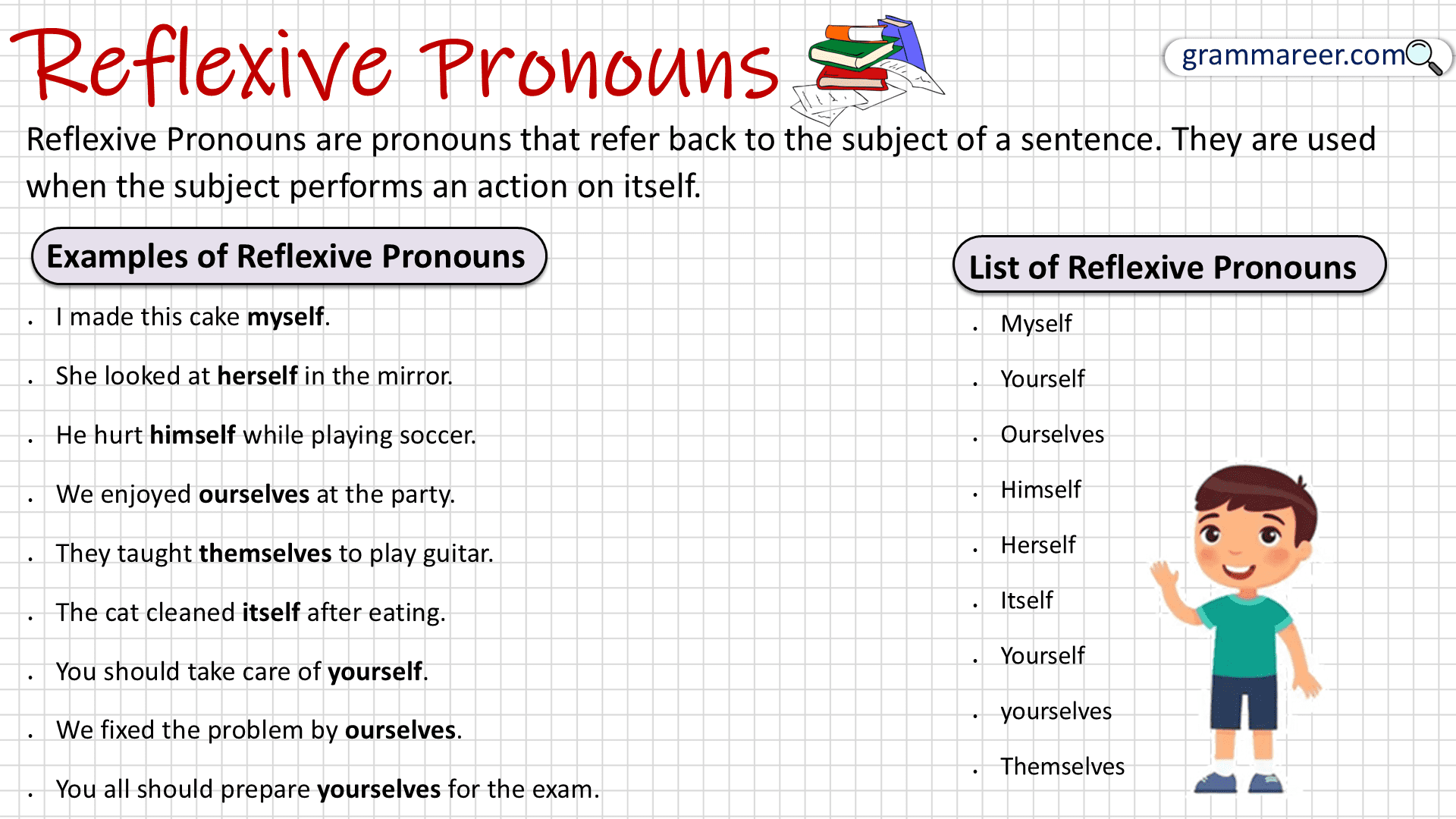Reflexive pronouns are an essential part of the English language and are used to reflect back to a noun or pronoun previously mentioned in the sentence. They are often confused with personal pronouns, but there are distinct differences between the two. While personal pronouns refer to specific people or things, reflexive pronouns are used when the subject and object of a sentence are the same.
Personal pronouns are used to refer to specific individuals or groups, such as “I,” “you,” “he,” “she,” “it,” “we,” and “they.” These pronouns help to identify who or what is being talked about in a sentence. On the other hand, reflexive pronouns include words like “myself,” “yourself,” “himself,” “herself,” “itself,” “ourselves,” and “themselves.” These pronouns are used to reflect back to the subject of the sentence.
For example, in the sentence “I saw myself in the mirror,” the reflexive pronoun “myself” reflects back to the subject “I.” Without the reflexive pronoun, the sentence would not make sense. Personal pronouns, on the other hand, can stand alone without reflecting back to the subject.
Reflexive pronouns are also used for emphasis or to show that the subject of the sentence performed an action on itself. For instance, in the sentence “She baked the cake herself,” the reflexive pronoun “herself” emphasizes that she, and no one else, baked the cake.
In addition to emphasizing actions, reflexive pronouns are also used in sentences where the subject and object refer to the same person or thing. For example, in the sentence “He hurt himself while playing soccer,” the reflexive pronoun “himself” refers back to the subject “he.” Without the reflexive pronoun, the sentence would be incomplete.
So, while reflexive pronouns are often considered a type of personal pronoun, they serve a distinct purpose in the English language. They are used to reflect back to the subject of a sentence or emphasize actions performed by the subject on itself. Understanding the difference between personal pronouns and reflexive pronouns is crucial for clear and effective communication in writing.
In conclusion, reflexive pronouns, while related to personal pronouns, have a specific function in English grammar. They are used to reflect back to the subject of a sentence or emphasize actions performed by the subject on itself. By recognizing the role of reflexive pronouns, writers can enhance the clarity and coherence of their writing.
